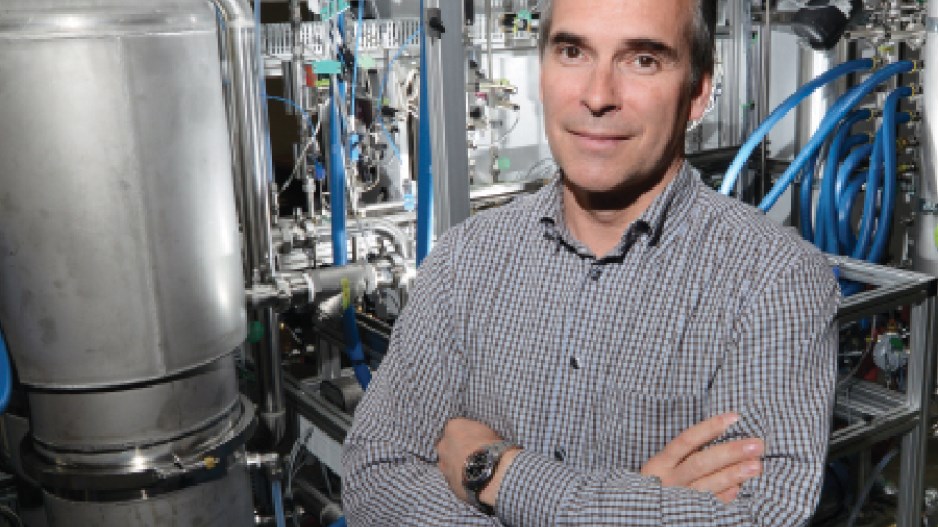B.C. manufacturers who have been ignoring South Korea to focus on China, India and Japan may want to take a second look at the Land of the Morning Calm.
South Korea may have a fraction of China’s population (50 million, compared with China’s 1.4 billion), but it has a large, wealthy middle class, an appetite for high-quality Canadian goods and an approach to business that is more western in style than that of China or Japan, according to one B.C. company already doing business there.
South Korea is also now the only Asian country with a free trade agreement with Canada. The Canada-Korea Free Trade Agreement, signed March 11, puts Canada on a more even footing with the U.S. and Australia, both of which already have Korean free trade agreements in place.
“There is no province that will benefit more from this agreement than British Columbia,” Prime Minister Stephen Harper said during a visit to Vancouver in March.
According to Industry Canada, Canada had a $4 billion trade deficit with Korea in 2013. The Harper government says the new agreement will increase Canadian exports to Korea 32% – an increase worth $1.7 billion.
The agreement will remove tariffs in both countries, which will make it easier for B.C. manufacturers to do business there, especially those that may have competitors in South Korea.
“Because Korea is sandwiched between two larger economies, they do tend to get overlooked,” said Marcus Ewert-Johns, B.C. vice-president for the Canadian Manufacturers and Exporters (CME), who spent three years with the Canadian embassy in Seoul.
“Korea’s a great market because it’s at that maturity point where Canadians can do business and it’s not as wild as China. It’s not as unpredictable as China. It’s a safe economy [with] a large, wealthy middle class.”
The bulk of Canadian exports to Korea are resources, such as metallurgical coal, lumber and minerals. But the CME sees a growing opportunity in Korea for Canadian manufactured goods and food products, as well.
Arc’teryx and Greenlight Innovation are two B.C. manufacturers already exporting products to Korea. Both expect the new free trade agreement to improve business.
Greenlight Innovation makes testing equipment for hydrogen fuel cells. Korea’s two biggest auto makers, Hyundai and Kia Motors Corp., both make hydrogen fuel cell cars, and Seoul has been pushing clean energy, including residential hydrogen energy systems, so the demand for Greenlight’s technology is strong there.
“Since 2008, it’s probably been our largest single geographic market,” said Greenlight CEO Ross Bailey. “We do 10 projects a year there and it’s well into the millions that we’re doing there.”
The removal of tariffs will help Canadian companies that are directly competing with Korean companies or with Australian or U.S. competitors.
“We don’t have a lot of Korean competitors, but there are some, so it will help level that playing field,” Bailey said.
Arc’teryx CEO Vincent Wauters also expects the free trade agreement to make it easier to do business in Korea.
Arc’teryx already has 14 branded stores in South Korea and plans to open four more. Arc’teryx makes high-end outdoor clothing, packs and climbing gear. Some of the company’s jackets sell for as much as $1,000. Having duties removed could lower some of those prices for Korean buyers.
“Everything we produce here in Canada will have less duty on it,” Wauters said. “So it will give us better competitiveness. We may have a chance to adjust some of the pricing and increase volume.”
Korea is similar to Japan in that both countries have a wealthy, fashion-conscious middle class that likes to participate in outdoor sports. But even though Japan has more than twice Korea’s population, Korea is Arc’teryx’s fifth-largest export market, while Japan is the seventh.
“Korea is actually a very important outdoor market,” Wauters said. “It’s actually considered as being the second-biggest outdoor market in the world.”
In January, Straitline Components, a Vancouver Island company that makes mountain bike components, got an order from a Korean distributor, and it has since filled two orders.
“It hasn’t been a huge market just yet,” said Straitline brand manager Melissa Camelon. “We’re hoping that it’ll increase.”
Bailey said it can be easier to do business in Korea than it is in Japan, especially for technology companies like his.
“Japan is very insular,” he said. “It’s a difficult market to break into. [Koreans] have adopted a mindset where they will import technology, where Japan doesn’t have that mindset. I think Japan thinks they’re a leader, [so] they don’t need to go outside for western technologies.”
And China can be unpredictable, he added.
“Trust is a harder issue to get there. You’re never really sure that things are going to get done there. It’s more of an uncertain business environment.”
B.C. businesses that want to do business in Korea will want to have boots on the ground, Wauters and Bailey said. Arc’teryx and Greenlight both have local distributors in Korea who have a deep understanding of the local business environment.
“Having a local partner would help to understand the local needs,” Wauters said. “But otherwise it’s a very well-organized country. The communication, the logistics, the overall organization of the country is super, super advanced.”
Four times a year, Business in Vancouver promotes the message of business excellence with our Business Excellence Series. Topics identify specific issues that contribute to business excellence. Our 2014 series includes Manufacturing and Exporting, which will be presented on June 10, 2014.
For more information about this event, which includes a moderator-led panel discussion/breakfast, click here.




